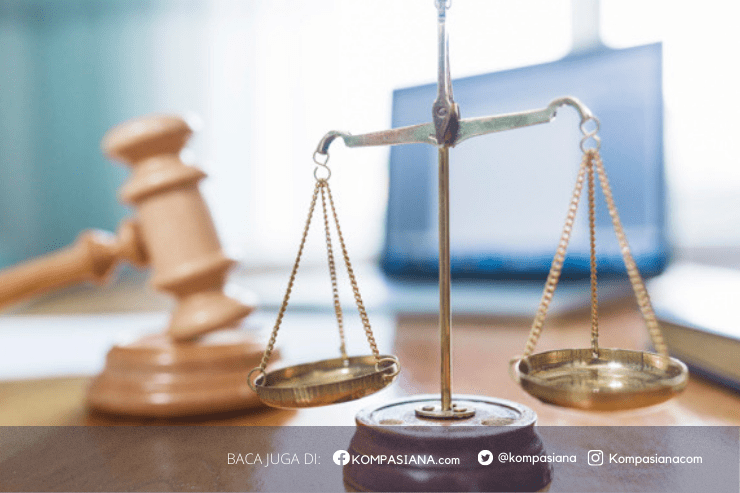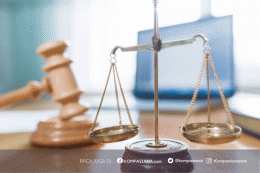Roy Suryo's Analysis of Fake Diplomas at the Criminal Investigation Department
The proliferation of counterfeit academic credentials has become a significant concern, prompting investigations into the extent and nature of this fraudulent activity (Chaniago et al., 2021). Roy Suryo's involvement in analyzing fake diplomas at the Criminal Investigation Department highlights the seriousness with which these issues are being addressed (Castro & AuYongOliveira, 2021). The production and distribution of fake diplomas undermine the integrity of educational institutions and can have far-reaching consequences for individuals and organizations that rely on these qualifications (Nevizond et al., 2021). The phenomenon of academic fraud, encompassing cheating, plagiarism, and falsification, poses a threat to the integrity and ethical standards of educational institutions (Pratiwi & Minarso, 2021). This includes the misrepresentation of qualifications, awards, and recognition, necessitating a comprehensive understanding of the underlying causes, impacts, and potential deterrents (Garwe, 2015).
The act of falsifying patient data by medical professionals constitutes a criminal act with significant legal repercussions, emphasizing the ethical and legal obligations incumbent upon doctors to uphold the accuracy and integrity of medical records (Yuni, 2022). Such fraudulent activities encompass a range of illicit behaviors, including the forgery of documents, signatures, and official stamps (Yuni, 2022). The implications of such fraudulent degrees extend beyond individual cases, potentially impacting the credibility of professions and industries that rely on qualified personnel (Agud, 2014). Instances of scientific misconduct, although reportedly admitted by a small percentage of researchers, can have devastating consequences, particularly in the medical field, where retracted articles can mislead healthcare professionals and harm patients (Barde et al., 2020). Instances of creating false data or manipulating data to generate preferred results, cheating or using other's ideas as own, disclosing improperly the identity of participants, underserved authorship claims, submission to multiple journals, duplicate publications, salami slicing, and predatory publications have been observed (Dhakal, 2018). In the health sciences, research misconduct can lead to patient harm, wasted resources, and erosion of public trust, highlighting the critical need for transparency and accountability in research practices (Ramnarain & Kirk, 2007). The problem with manipulating or misrepresenting research results is that they undermine trust within the scientific community and public trust in research (Antes & Maggi, 2021).
Recognizing that research misconduct can manifest in various forms, ranging from data fabrication and falsification to plagiarism and the manipulation of research findings, it becomes imperative to implement robust measures to detect and prevent such unethical practices (Fanelli, 2009; Sharma & Singh, 2011). The rarity of large-scale random sample studies in research misconduct underscores the challenges in investigating these covert activities, which often occur in private settings (DuBois et al., 2013). This has lead to loss of confidence and future participation by the public in clinical research (Ling, 2018). Scientific misconduct not only threatens the validity of scientific knowledge but also damages the trust between scientists and the public, particularly when revealed in the media (Bouter et al., 2016). Addressing research misconduct requires a multifaceted approach that encompasses education, mentorship, and the promotion of a culture of integrity within research institutions (Gopalakrishna et al., 2022). The fabrication, falsification, and plagiarism, are the most common forms of research misconduct (Gross, 2015; Martinson et al., 2005).
The lack of a clear system for reporting, investigating, and addressing allegations of research misconduct can exacerbate the problem, potentially leading to frustration and negative professional repercussions for those who attempt to police behavior (Edwards & Roy, 2016). The absence of robust oversight mechanisms and the fear of retaliation can discourage individuals from reporting suspected misconduct, further perpetuating unethical practices within the research community. The integrity of research relies on adherence to ethical principles, transparency in methodology, and accuracy in reporting, which are essential for generating reliable and trustworthy knowledge (Lose & Klarskov, 2017). The absence of such integrity can lead to significant consequences, including the retraction of publications, damage to researchers' careers, and erosion of public trust in science. Institutional support through clear guidelines, robust training, and mentorship is crucial to fostering a culture of research integrity (Armond et al., 2024).
References
Agud, J. L. (2014). Fraude y plagio en la carrera y en la profesin. Revista Clnica Espaola, 214(7), 410. https://doi.org/10.1016/j.rce.2014.03.007
Antes, A. L., & Maggi, L. B. (2021). How to Conduct Responsible Research: A Guide for Graduate Students. Current Protocols, 1(3). https://doi.org/10.1002/cpz1.87
Armond, A. C. V., Cobey, K. D., & Moher, D. (2024). Research Integrity definitions and challenges. Journal of Clinical Epidemiology, 171, 111367. https://doi.org/10.1016/j.jclinepi.2024.111367
Barde, F., PeifferSmadja, N., & Blanchardire, A. de L. (2020). Fraude scientifique: une menace majeure pour la recherche mdicale. La Revue de Mdecine Interne, 41(5), 330. https://doi.org/10.1016/j.revmed.2020.02.004
Bouter, L. M., Tijdink, J. K., AXELSEN, N. H., Martinson, B. C., & Riet, G. ter. (2016). Ranking major and minor research misbehaviors: results from a survey among participants of four World Conferences on Research Integrity. Research Integrity and Peer Review, 1(1). https://doi.org/10.1186/s41073-016-0024-5







